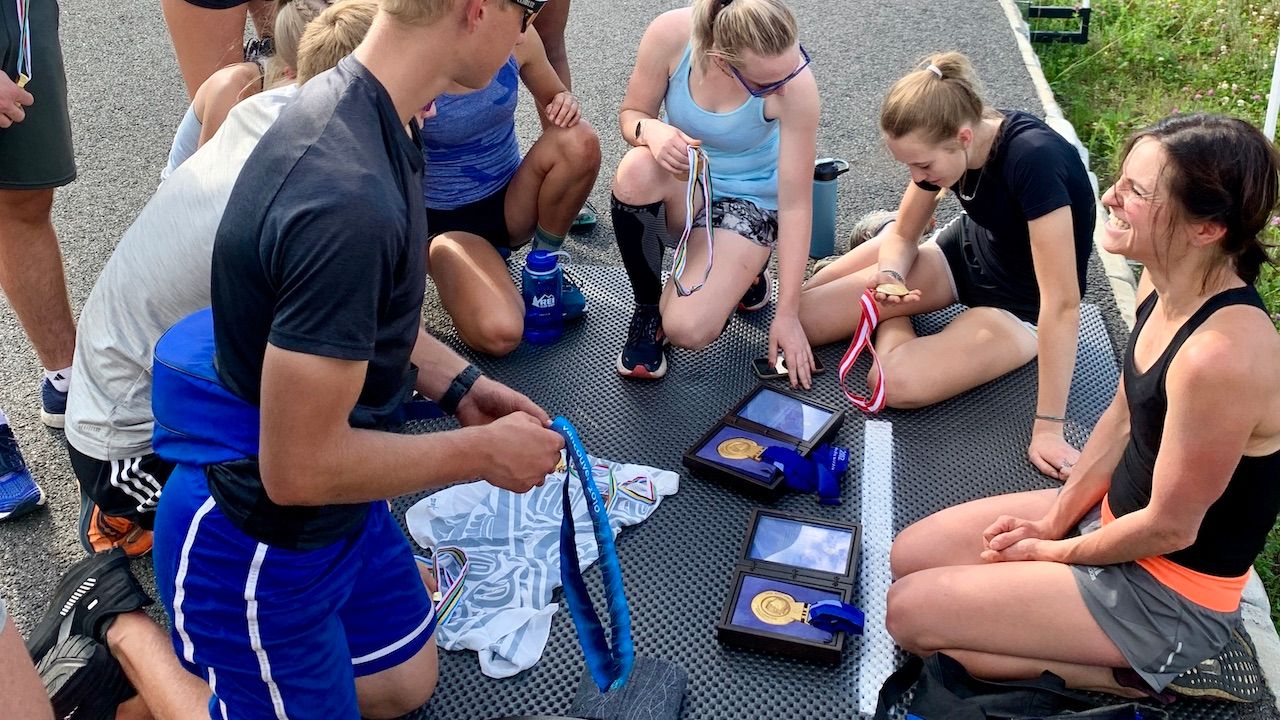
In this blog post, I will talk about some of the ways young athletes can think ahead, can be guided, guide themself, and stay ahead of the game.
In Thinking Ahead as a Young Athlete, I was talking about the reasons for planning and being proactive. That´s a good idea to avoid injuries, boost motivation, or set realistic and exciting goals. But what are the tools young athletes can use to get some guidance into the future.
Watch older athletes or direct competitors and teammates.
One of the best ways to learn is by watching other athletes in action. Observing their training routines, techniques, and strategies can give young athletes a clear idea of what works and what doesn't. How young athletes can learn from their own mistakes and learn from them, they also might catch some mistakes others make and avoid the same errors. That´s why those pieces of information are not only given by athletes that are ranked better. Watching older athletes can also help young athletes set goals for themselves and get an idea of a long-term vision for their athletic career, which is great for motivation.
Of course, just focusing on all the others is not the solution. It is only one tool that can easily be used every once in a while and on little snippets. It´s nothing to be done the whole and every training session.
Ask the coach questions.
Another way young athletes can think ahead is by asking their coaches questions. Coaches have a wealth of knowledge and experience in the sport, and they are always willing to share their insights with their athletes. Asking questions about training techniques, nutrition, recovery, and other aspects of the sport can help young athletes gain a deeper understanding of the sport and improve their performance. Even just understanding the purpose of the training session makes the session itself much more productive. It also helps to understand the training process in bite size pieces. By being aware of the process, the athlete is learning so much about their body and how it responds to certain training inputs.
Follow a specific program.
Following a structured training program is an effective way to avoid problems before they happen. A thoughtfully designed program leads toward the athlete's goals and fits their abilities and limitations. Having a roadmap is not just important for achieving success, it also keeps athletes on track, when training gets tiring or adjustments need to be made because of an injury or sickness. Athletes know what they want to get back to when the body allows it again. A good program also includes strategies for injury prevention, rest and recovery, and gradual progression to avoid burnout and overtraining.
Choosing a mentor
A mentor can come in different ways and doesn´t have to be one person. Sometimes the mentor doesn´t even know they are mentoring. Someone who supports the athlete in what is needed at this moment can be seen as a mentor. This can be someone who provides honest feedback. This even can be teammates creating a supportive environment where everyone feels comfortable making mistakes. Even someone on Instagram, who encourages the athlete to practice good habits and is sharing valuable information. This can be actual knowledge and guidance to showing what the life of a high-performance athlete is looking like and everything in between. Of course, the mentor can be active and someone who has been there and done what the athlete is aiming for. This mentor can provide guidance and support to the athlete individually or in groups. A mentor can help the athlete set goals, refine a plan, and provide encouragement and feedback along the way. You see, also the coach is a mentor.
The tricky part with teenagers, I have been one as well, can be that they might think they know everything they need to know. That´s why the first step would be to sensitize young athletes that it is okay to be guided and to be open for feedback and for getting support.
To sum it up, thinking ahead is not only for professional athletes, also for young athletes who want to avoid problems before they happen. Watching older athletes, asking the coach questions, following a specific program, and having a mentor are all effective ways to stay ahead of the game. By taking proactive steps, young athletes can learn a lot for themself, maximize their potential and achieve success in their athletic journey.
Do you have a Dream? Keep going towards it :)
WHAT DOES AN ATHLETE NEED TO SUCCEED?
Not just one thing makes successful athletes, but a few in combination. Get the list of THIRTEEN by signing up below.
If you are an athlete, please let your parents know you got this list.







